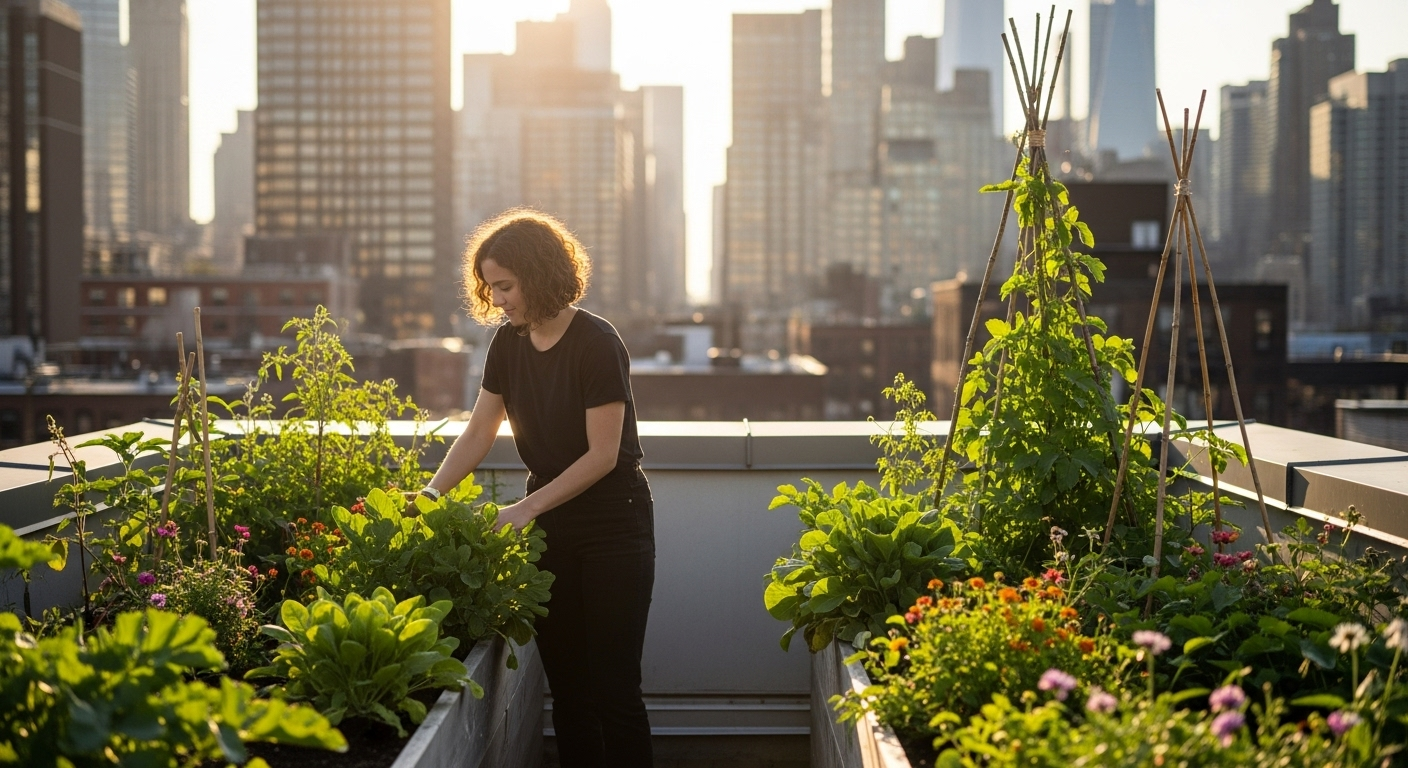Reap the Rewards: Understanding the Health Benefits of Urban Gardening
Urban gardening, a trend that has grown increasingly popular in recent years, is not just a hobby—it’s a lifestyle shift with numerous health benefits. Rooted in the desire to cultivate personal growth and sustainability, this practice has the potential to transform both our physical and mental wellness.

A Green Thumb’s History: The Origins of Urban Gardening
Urban gardening isn’t a new concept. In fact, it can be traced back to the ancient civilizations of Babylon and Greece, where rooftop gardens were used to grow food and medicinal herbs. The practice gained popularity during World War II when Victory Gardens were encouraged to support the war effort. Today, urban gardening has evolved to serve a variety of purposes, from providing fresh produce to creating green spaces in concrete jungles.
Urban Gardening Today: A Trend Rooted in Health
Modern urban gardening is much more than just an eco-friendly practice—it’s a wellness revolution. Research indicates that this form of gardening can reduce stress, improve mood, and promote physical activity. The act of planting, tending, and harvesting your own food can create a sense of accomplishment and self-sufficiency, contributing to improved mental health.
Digging Deeper: The Physical and Mental Benefits
Urban gardening is physically engaging, involving activities like digging, planting, weeding, and watering. These tasks can help improve strength, flexibility, and cardiovascular health. Moreover, spending time outdoors and in the sun can boost vitamin D levels, which are essential for bone health and immune function.
In terms of mental health, a study published in the Journal of Health Psychology found that gardening can reduce stress and improve mood. The nurturing aspect of gardening can also foster a sense of responsibility and care, contributing to emotional well-being.
Growing Concerns: Challenges and Credibility
Despite its numerous benefits, urban gardening is not without challenges. Limited space, soil contamination, and lack of sunlight in some areas can pose difficulties. However, innovative solutions like vertical gardening, using raised beds, and indoor gardening techniques can overcome these obstacles.
The credibility of urban gardening as a wellness strategy is supported by numerous scientific studies. Although it is not a substitute for medical treatment, it can complement overall health strategies by promoting physical activity, mental well-being, and healthy eating.
Sprouting Insights: Health Facts from the Garden
-
Studies suggest that gardening can burn between 200-400 calories per hour, making it a great form of low-impact exercise.
-
According to a study in the Journal of Public Health, urban gardening can contribute to increased vegetable consumption, thus promoting a healthier diet.
-
A study in the Journal of Alzheimer’s Disease found that daily gardening could reduce the risk of dementia by 36%.
-
Research in the Journal of Health Psychology found that just 30 minutes of gardening can reduce levels of the stress hormone, cortisol.
The Harvest: Key Takeaways
Urban gardening is more than just a sustainable lifestyle choice—it’s a wellness strategy with tangible physical and mental health benefits. From boosting physical activity and promoting healthier eating habits to reducing stress and improving mood, the health benefits of urban gardening are rooted in science. As we continue to explore innovative wellness trends, the growth of urban gardening shines a light on the power of connecting with nature, even in our urban spaces. By planting the seeds of wellness in our own backyard, we can cultivate a healthier, happier life.




